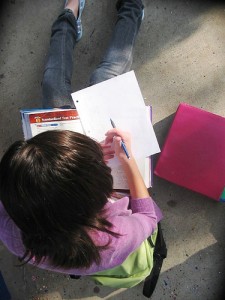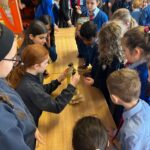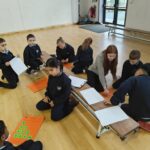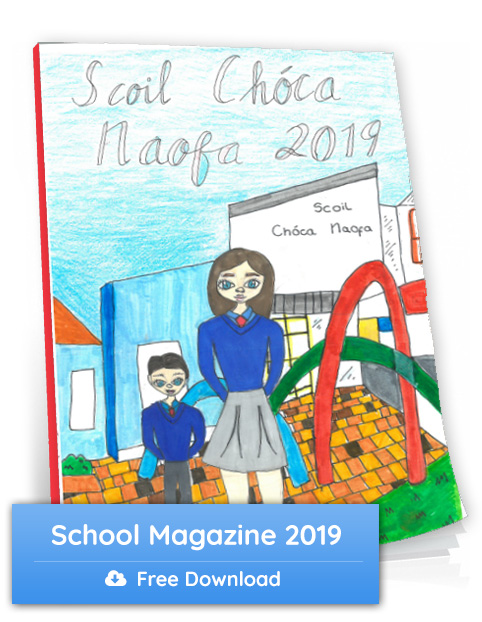

You can read the full text in our policy section or download the document here: Homework Policy
All classes will receive homework assignments. Homework reinforces work done in school. It is differentiated according to children’s needs and abilities and is always explained to children in school.
Homework contains a balance of tasks: reading, spellings, tables, written work, pieces to be ‘learned by heart’, drawing/colouring, collecting information/items, finishing work started in class, some project work, some research (interviews, IT work, etc). Children often feel that reading and ‘learning by heart’ are not real homework. Parents can play an important role: PLEASE listen to reading or read with your child every evening. Talk about spellings. Listen to Tables.
Homework is meant to be achievable by a child: it provides an opportunity to practice work that has already been learned. The teacher in class normally prepares it. However, sometimes with senior classes, homework is designed to challenge children’s ability and provide opportunity for creativity.
Children are expected to do their homework to the best of their ability.
Because Homework is a link between home and school and is prepared daily in class, WE DO NOT SET HOMEWORK FOR EXTENDED ABSENCES e.g. holidays – if you want to work with your child during holidays, encourage your child to read; perhaps your child could keep a holiday diary; you could have maths quizzes with your child; you could find out interesting things about the geography and history of your holiday destination.
How often is homework given?
The following are general guidelines only for time spent at homework. It is important to remember that it is the quality and not the quantity of homework that matters.
Junior Infants/Senior infants – Up to 10 minutes
First/Second Classes – Up to 20 minutes
Third/Fourth Classes – Up to 40 minutes
Fifth/Sixth Classes – 45- 60 minutes
Homework is given from Monday to Thursday. Normally there is no homework at weekends or on a school day just before a public holiday. However, children in middle and senior classes may sometimes be required to work independently on projects at weekends.
Homework Journal
Children in First to Sixth classes purchase a Homework Journal at the beginning of the year. The pupil’s journal is an important record of the child’s homework. It is also a valuable means of communication between parent and teacher. Please check that your child records homework neatly on the correct page and ticks each item of homework as it is completed. Children are encouraged to put letters from school into the current page of their journal. Please check for notes on a regular basis.
Homework Club
A homework Club was established in 2008 for children from 2nd to 6th classes. This year Ms Mahon is in charge of the Homework Club and all queries should be addressed to her.
If children receive a ‘no homework pass’ it will always be for the following day – to allow parents of children in HW Club to be notified.
Many parents worry if their child is experiencing difficulty with literacy and/or numeracy. Please make an appointment and talk to teacher.
One of the best ways of helping your child to improve reading is “Paired Reading”. Some useful tips about Paired Reading can be found on YouTube. NCCA also has many useful tips about helping your child.
Dyslexia Ireland is another source of useful ideas on how a parent can help with reading and spelling – see parents section.





